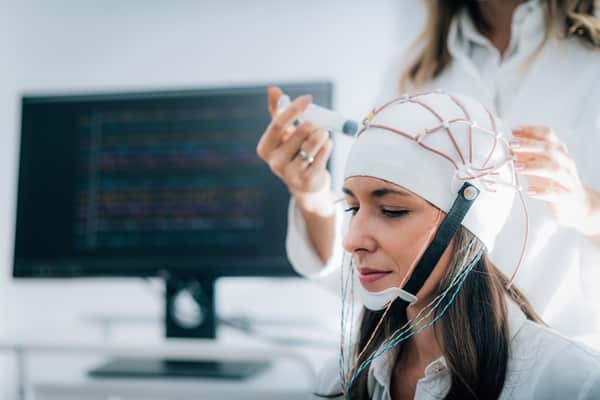In an era where technology intricately intertwines with daily life, Artificial Intelligence (AI) emerges as a pivotal tool, particularly in personal health management. This technology, once a mere figment of science fiction, can now play a crucial role in enhancing your health and well-being. This post highlights the various ways AI can improve your personal health. From crafting individualized health plans to aiding in medical diagnostics, AI’s capabilities are vast and transformative. You will explore how AI not only complements but also revolutionizes the way people approach personal health in the modern world.
Contents
AI and Personalized Health Plans

AI’s integration into health planning marks a revolutionary shift in personal healthcare. By harnessing vast amounts of health data, AI systems can create highly personalized health plans for individuals. These plans consider unique aspects such as genetic predispositions, lifestyle choices, and existing health conditions. The precision of AI in analyzing and interpreting health data far exceeds traditional methods, allowing for more accurate and effective health strategies. This customization ensures that each individual receives a health plan that is not only effective but also tailored to their specific needs and circumstances.
The success stories stemming from AI-created health plans are both inspiring and indicative of its potential. For instance, individuals with chronic illnesses have experienced improved health outcomes through AI-crafted plans that meticulously monitor and adjust to their health needs. In another scenario, AI’s ability to analyze patterns in lifestyle and health metrics has led to preventive strategies for at-risk individuals, significantly reducing their chances of developing certain diseases. These real-world examples underscore AI’s capability to positively influence personal health through customized, data-driven approaches.
AI in Medical Diagnostics

AI’s proficiency in medical diagnostics is a game-changer in healthcare. Its ability to process and analyze complex medical data with incredible speed and accuracy has led to more precise diagnoses. Unlike traditional methods, AI can detect subtle patterns in medical imaging or lab results that might elude human experts. This heightened accuracy is crucial in early disease detection and treatment, potentially saving lives. Moreover, AI reduces the likelihood of diagnostic errors, ensuring patients receive the correct treatment promptly.
In preventive medicine, AI’s role is equally significant. By utilizing predictive analytics, AI can forecast potential health issues before they become serious. This foresight is particularly valuable in managing chronic diseases, where early intervention can make a substantial difference. AI systems can analyze trends in a patient’s health data over time, alerting healthcare providers to any concerning changes. This predictive approach not only prevents the deterioration of existing conditions but also aids in the early detection of new health issues, ensuring timely and effective intervention.
AI and Mental Health

AI’s application in mental health opens new avenues for treatment and support. AI-driven therapy bots and mental health apps offer accessible and immediate support for individuals seeking mental health assistance. These AI systems are designed to provide empathetic and effective guidance, often based on cognitive-behavioral therapy principles. They offer a level of anonymity and convenience that can be particularly appealing to those hesitant to seek traditional therapy. Additionally, AI’s constant availability ensures individuals have support whenever they need it, breaking down barriers to mental health care.
Beyond direct therapy, AI significantly contributes to mental health research. By analyzing large sets of mental health data, AI can identify patterns and correlations that might elude human researchers. This analysis leads to a deeper understanding of mental health conditions and their triggers, paving the way for more effective treatments. AI’s data-driven insights have also been instrumental in tailoring mental health interventions to individual needs, enhancing the effectiveness of therapeutic approaches. This research is crucial in the ongoing quest to understand and effectively treat mental health conditions.
AI in Lifestyle Management

AI’s role in lifestyle management extends to crucial areas like fitness and nutrition. By analyzing individual health metrics and preferences, AI can provide personalized recommendations for exercise and diet. These AI-driven plans adapt to changes in an individual’s lifestyle, ensuring they remain effective over time. For those seeking to lose weight, gain muscle, or simply maintain a healthy lifestyle, AI’s personalized guidance is invaluable. It democratizes access to personalized health advice, which was once only available through expensive personal trainers or nutritionists.
AI’s impact is also felt in improving sleep and overall wellness. Through monitoring sleep patterns and environmental factors, AI can offer tailored suggestions for enhancing sleep quality. This is crucial, as good sleep is a foundational element of overall health. AI systems can also track stress levels and suggest interventions, like mindfulness exercises, to improve mental wellness. The ability to monitor and analyze various wellness metrics in real-time allows AI to provide actionable insights, contributing significantly to an individual’s health and quality of life.
Ethical Considerations of AI in Health

The integration of AI in health raises important ethical considerations, particularly regarding privacy. As AI systems require access to vast amounts of personal health data to function effectively, the risk of data breaches and unauthorized access becomes a significant concern. Ensuring the confidentiality and security of sensitive health information is paramount. Healthcare providers and AI developers must adhere to stringent data protection regulations and employ advanced security measures to safeguard patient data. Transparency about data usage and giving patients control over their information are crucial steps in addressing these privacy concerns.
Another ethical challenge is the potential for bias and inequality in AI health solutions. AI systems are only as unbiased as the data they are trained on; if this data is skewed, the AI’s decisions and recommendations may be biased. This can lead to unequal healthcare services, disproportionately affecting underrepresented groups. Addressing these biases requires a conscious effort to include diverse data sets in AI training and continuous monitoring for biased outcomes. Developers and healthcare providers must work together to ensure AI health solutions are equitable and accessible to all, regardless of their background.
The Future of AI in Personal Health

Looking toward the future, AI in personal health is poised for groundbreaking advancements. Emerging technologies, such as AI-integrated wearable devices and advanced health monitoring systems, are set to revolutionize how you can manage your health. These innovations promise enhanced accuracy in health monitoring and diagnosis and greater accessibility to personalized healthcare. As AI technology continues to evolve, its potential to transform every aspect of personal health care, from prevention to treatment, becomes increasingly evident. The future might see AI becoming an integral, everyday partner in managing personal health.
However, this future is not without its challenges. Balancing the technological advancements with the human aspect of healthcare will be critical. While AI can provide efficiency and precision, the empathy and judgment of human healthcare professionals remain irreplaceable. The challenge lies in harnessing AI’s potential while maintaining a human touch in healthcare. Ethical considerations, such as privacy and bias, will continue to be significant concerns that need ongoing attention. Navigating these challenges successfully will be key to fully realizing AI’s potential in improving personal health.
The Bottom Line
As you navigate the ever-evolving landscape of AI in personal health, it becomes increasingly clear that its potential is vast and transformative. While mindful of the ethical implications and the irreplaceable human element in healthcare, embracing AI’s advancements can lead to significant improvements in your health and well-being. You are encouraged to stay informed and open-minded about the possibilities AI offers. Doing so will allow you to harness this technology to create a healthier, more informed society where personal health management is more accessible, effective, and personalized than ever before.


